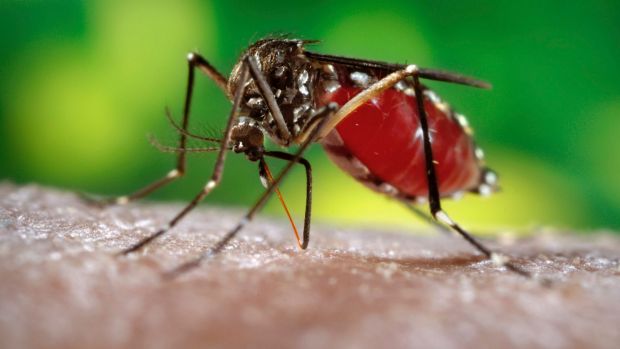
Increased risks: Mosquitoes are expected to bring tropical diseases south. Photo: Supplied
A range of tropical diseases will become more widespread in Australia due to climate change, including a dramatic increase in mosquito-borne illnesses, scientists warn. Their research has prompted leading doctors to call for a co-ordinated response from the federal and state governments to the pending crisis.
In a paper released on Thursday, the Australian Academy of Science said diseases currently confined to the tropics would be unlocked and travel south. The incubation period for mosquito-borne diseases such as dengue would also be shortened.
Rising temperatures and changes to water availability were also likely to increase the prevalence of food and water-borne diseases. The scientists forecast an increased risk of respiratory diseases as more people spend time indoors to avoid extreme heat, and population density increases due to population growth.
“A clear problem facing Australia as it prepares to deal with the problem of the rise in infectious illnesses triggered by climate change is its lack of a single centre through which information about communicable diseases can be co-ordinated and disseminated,” the paper said.
“Such a disease centre should be considered critical for forecasting and managing future disease risks.”
The authors said such a centre would speed up detection and disease response efforts, generate tools to predict disease risk, and evaluate the capacity of the health system to cope with the expected increased disease burden.
Extreme heat would place a significant strain on an already stressed healthcare system, the authors predicted, noting that in the Victorian heatwave of 2009, there were an estimated 374 excess deaths due to heat, more than twice as many as were caused by bushfires. A 2013 federal government report predicted heatwave-related deaths in Australian cities would more than double in the next 40 years.
Warning that the most vulnerable members of the community, such as the elderly and the poor, would be hardest hit, the authors called for research to identify populations at greatest risk from extreme weather events.
They predicted ocean acidification would damage livelihoods in fishing as well as in tourism, and threats to the food supply along with forced migration from land rendered uninhabitable by climate change would trigger tension and unrest.
“Conflict will be inevitable,” the authors warned.
Australian Medical Association president Brian Owler said the report should be a catalyst for the Abbott government to show leadership on reducing greenhouse gas emissions ahead of the UN climate change conference in Paris later this year.
Associate Professor Owler backed the report’s recommendation to establish a National Centre of Disease Control.
“Doctors and other health workers need to be informed by sound up-to-date data. For example, we need to know when a disease that is traditionally found in tropical regions has moved south,” he said.
“This will allow health authorities to plan and allocate health personnel and services to deal with changing patterns of disease.”
